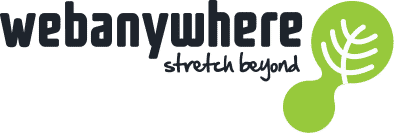The Benefits of Personalization in E-Learning

E-learning has changed from a novel idea to a fundamental part of education worldwide, accommodating diverse learning schedules and environments. This shift highlights the increasing need to adapt educational methods to the digital era, where flexibility and accessibility are key.
Personalization in e-learning refers to customizing learning experiences to align with individual learner preferences and needs. Integrating adaptive technologies and data analytics means e-learning platforms can create highly tailored content that enhances learning efficiency and engagement.
This article will delve into the transformative power of personalized learning in e-learning environments.
Tailored Learning Experiences
Personalized learning experiences in e-learning are designed to adapt the educational content and methods to fit each learner’s unique needs, skills, and interests. This approach helps ensure that every student can engage with material that is most relevant and beneficial to their learning journey.
E-learning platforms leverage data such as previous test scores, time spent on tasks, and preferred learning formats to customize content for each student. This data-driven approach enables the creation of a learning path that optimally challenges and supports the learner, enhancing understanding and retention.
Adaptive learning technologies exemplify this personalization. These systems dynamically adjust the difficulty and type of content presented based on real-time responses from the learner. Examples include platforms that offer more advanced reading materials as comprehension improves or adjust math problems’ complexity based on the student’s performance.
Increased Learner Engagement
Personalized content significantly boosts student interest by aligning learning materials with individual preferences and prior knowledge, which makes the content more relevant and engaging. This tailored approach helps sustain students’ attention and fosters a deeper connection to the material.
Interactive elements, such as quizzes, simulations, and gamification, engage learners. These components make learning active rather than passive, encouraging learners to participate and think critically, which enhances their overall learning experience.
Several case studies highlight the effectiveness of personalized learning in increasing motivation and engagement. For instance, businesses implementing adaptive training programs report that employees are more enthusiastic about completing tasks tailored to their roles and skill levels, leading to higher completion rates and more active participation in collaborative projects.
Improved Employee Performance
There is compelling statistical evidence linking personalized learning to improved workplace performance. Businesses that adopt personalized training programs often see a significant uptick in productivity and skill proficiency among employees, as the training is tailored to meet their professional needs and learning speeds.
Personalized feedback mechanisms are crucial in enhancing employee learning outcomes. LMS can provide targeted advice and insights based on an individual’s performance, allowing employees to quickly identify and focus on improvement areas, accelerating their professional development.
Adaptive assessments are also vital in driving better performance results. These assessments adjust their difficulty based on an employee’s responses, ensuring that each team member is adequately challenged and can demonstrate mastery of skills at their own pace, ultimately leading to more effective training and improved work outcomes.
Greater Accessibility and Inclusivity
Personalization in e-learning is a powerful tool for addressing learners’ diverse needs and backgrounds. Customizing content and pacing allows learners to access materials that resonate with their learning style and cultural context, making education more inclusive and effective for everyone.
Technological advancements have enhanced the ability to make e-learning content accessible for learners with disabilities. Features like text-to-speech, subtitles, adjustable text sizes, and colour contrast options ensure that all learners, regardless of physical or learning disabilities, can engage with educational materials.
Improved Learning Efficiency
Personalized e-learning significantly reduces learning time by delivering targeted instruction that addresses each learner’s needs and knowledge gaps. This focused approach prevents redundant learning, enabling quicker mastery of subjects.
Optimizing the learning path according to an individual’s pace and skills ensures that each learner progresses optimally without feeling rushed or held back. This customization enhances the overall efficiency of the learning process, as learners can spend more time on challenging areas while swiftly moving through topics they grasp easily.
Personalized revision schedules, tailored based on performance data, further boost learning efficiency. Analyzing a learner’s performance enables e-learning systems to suggest specific areas for review, ensuring that revision is focused and effective, leading to better retention and mastery of the material.
Increased Learner Autonomy
Personalization in e-learning empowers students by actively involving them in their learning process. This empowerment encourages learners to take ownership of their education, making decisions on what and how they learn, which fosters a deeper engagement and a more meaningful learning experience.
Tools that support personalized learning environments often include features that allow learners to set goals and track their progress. These tools facilitate self-directed learning and help learners see tangible evidence of their development, boosting motivation and self-confidence.
The impact of increased autonomy in learning extends beyond immediate educational outcomes, nurturing lifelong learning habits. When learners are accustomed to setting their learning objectives and pacing, they are more likely to seek knowledge and skills throughout their lives, quickly adapting to various learning environments and challenges.
The Benefits of Personalization In E-Learning
This article has highlighted several compelling benefits of personalization in e-learning, from creating tailored learning experiences that boost engagement and performance to encouraging inclusivity and improving learning efficiency. Personalized learning not only effectively meets individual learning needs but also enhances the overall educational journey for learners of all backgrounds.
Looking ahead, the future of personalized learning appears promising and integral to the evolution of educational practices. As technology advances, the potential for even more customized and impactful learning experiences grows, promising greater outcomes for students and educators.
Get in touch to learn how Webanywhere LMS can support your organisation’s-organization e-learning solutions.

